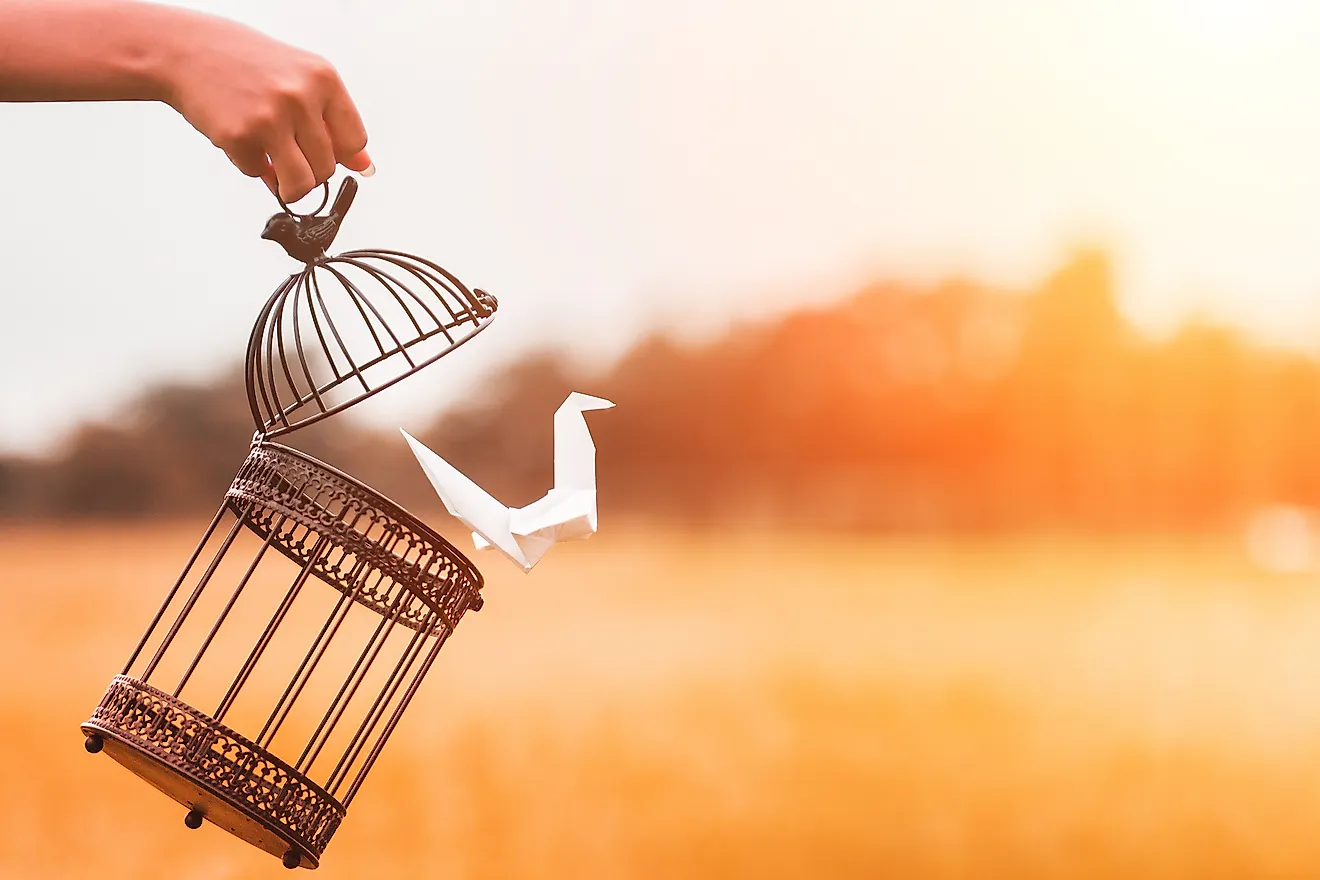10 Horrible Things That Happen To Caged Birds

- • Chocolates, avocados, and caffeine are toxic to birds that can lead to food poisoning or, worse, death.
- • Non-steel metal cages are prone to rust, and the dust they give off can pose a problem for the caged bird.
- • Overfeeding a bird is a significant health concern as it leads to obesity, fatty foods pose the highest risk for birds.
Animals are mobile by nature; they have to move to look for food, to search for a mate, and to escape danger, these kinds of movements require ample space to exercise these freedoms. Humans are no exception to this rule, and their need to own animals that are used to living in the wild forces them to keep these birds in cages. For many years, birds have been forced to bear the burden of being caged as they are smaller and easier to maintain than much bigger mammals. Having beautiful birds in the house chirping and singing away may look aesthetic, but it exposes the caged bird to many dangers that include the following.
Physical Injury
Cages are made of wire mesh that comes with small spaces where a bird can have their foot or nail stuck, and this could lead to severe injuries when the bed tries to free itself. The risk of physical harm is even higher in round cages that often come with a V-shape at the top with tiny spaces. Most birds could get their heads stuck between the small spaces leading to severe injuries.
Poorly Constructed Cages
Steel is the recommended material used to create bird cages. They are sturdy and do not rust. However, due to their high prices, many cage builders opt for cheaper materials. They are easily broken over time and are prone to wear and tear due to rust. Cages made of steel are easier to clean and maintain, unlike others, which disintegrate more every time they come into contact with water of the bird’s body fluids.

Birds have been designed by nature to fly in complete freedom. Encaging them is a big crime.
Diseases
The choice to keep a bird in a cage comes with sets of responsibilities. One of the most important ones is the cleanliness of the cage. When animals feed, they naturally have to excrete the waste out at some point, and with nowhere else to go in the cage, they typically handle their business inside the cage. If this is not cleaned out, it turns into a breeding ground for diseases that can pose a danger to the bird.
Attacks And Fights
Sometimes when birds share a cage fights break out once in a while, with limited space for them to maneuver, the birds may end up injuring each other or themselves against the cage as they flutter about. Other animals may also sneak into the cage and attack the birds. Cases of pet birds getting killed by cats after their cages were left open are not uncommon.
Malnutrition And Overfeeding
Despite the availability of pet shops around most urban centers that stock up on all possible food options, knowing what and when to feed the bird is what makes the difference between a healthy bird and one that suffers from malnutrition and obesity. Give the birds too little food that does not contain what their bodies require, and they suffer from malnutrition. Overfeed them, and they end up with new complications. Parakeets, for instance, are known to develop fatty liver diseases and liver tumors when overfed, with another side effect being the reduction of their life expectancy.
Inappropriate Foods
In line with malnutrition and obesity, caged birds should not be fed anything available. There are foods that are good for people but poisonous to birds. Foods with high sugar, salt, and fat are dangerous to birds. Chocolates, caffeine, avocados, onions, and garlic, as well as sweeteners like Xylitol, all contain traces of chemicals that affect birds in one way or another and should never be fed to birds.
Poorly Made Toys
Caged birds like parrots spend most of their day playing with toys to pass the time. It is recommended to get bigger and lighter toys that a bird can lift easily and one that does not break into small pieces. Some toys have small parts that the bird may end up swallowing and choking to death. Toys with strings and ropes should be avoided as birds can get entangled with them around their necks, leading to choking and death.
Air Quality
Many bird owners make the mistake of keeping the cages fixed in one spot in the house. Being indoors all the time starves a caged bird of fresh air, which is essential to their health. The air inside the house is not as good as outside. Fumes from cooking, body perfumes, smells from cleaning chemicals, Aerosols, pesticides, and cigarette smoke can be poisonous to the bird leading to health complications.
Depression
Contrary to widespread assumptions, animals do experience depression. Birds get depressed when they are cut off from their natural environment and thrown into the cage to live a solitary life. Isolation from other birds, and nature leads to self-destructive behaviors like appetite loss, low immune responses, aggressiveness, change in vocalization bars, plucking off of feathers, among other strange behaviors.
Gradual Neglect
Once the excitement of owning a pet bird wears off with time, pet owners gradually pay less and less attention to the bird. It reaches a point where unless the bird makes some noise, they are not fed on time or their cages cleaned as regularly as they are required. Negligence of this kind exposes the caged bird to dangers of disease, malnutrition, and even starvation in extreme cases. Forgetting to close cages allowing the bird to fly out could be attacked by other house pets, which is another consequence of negligence.











